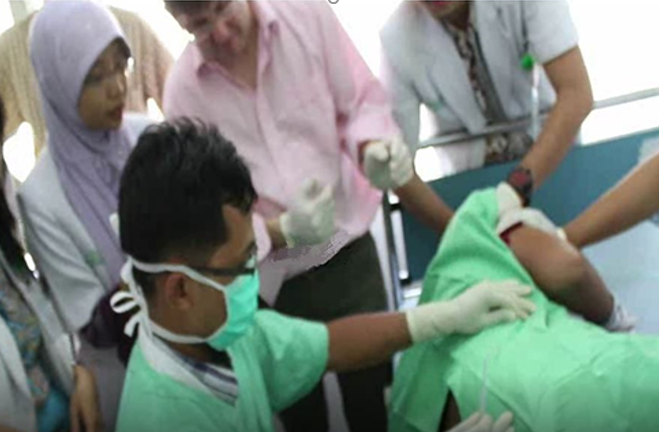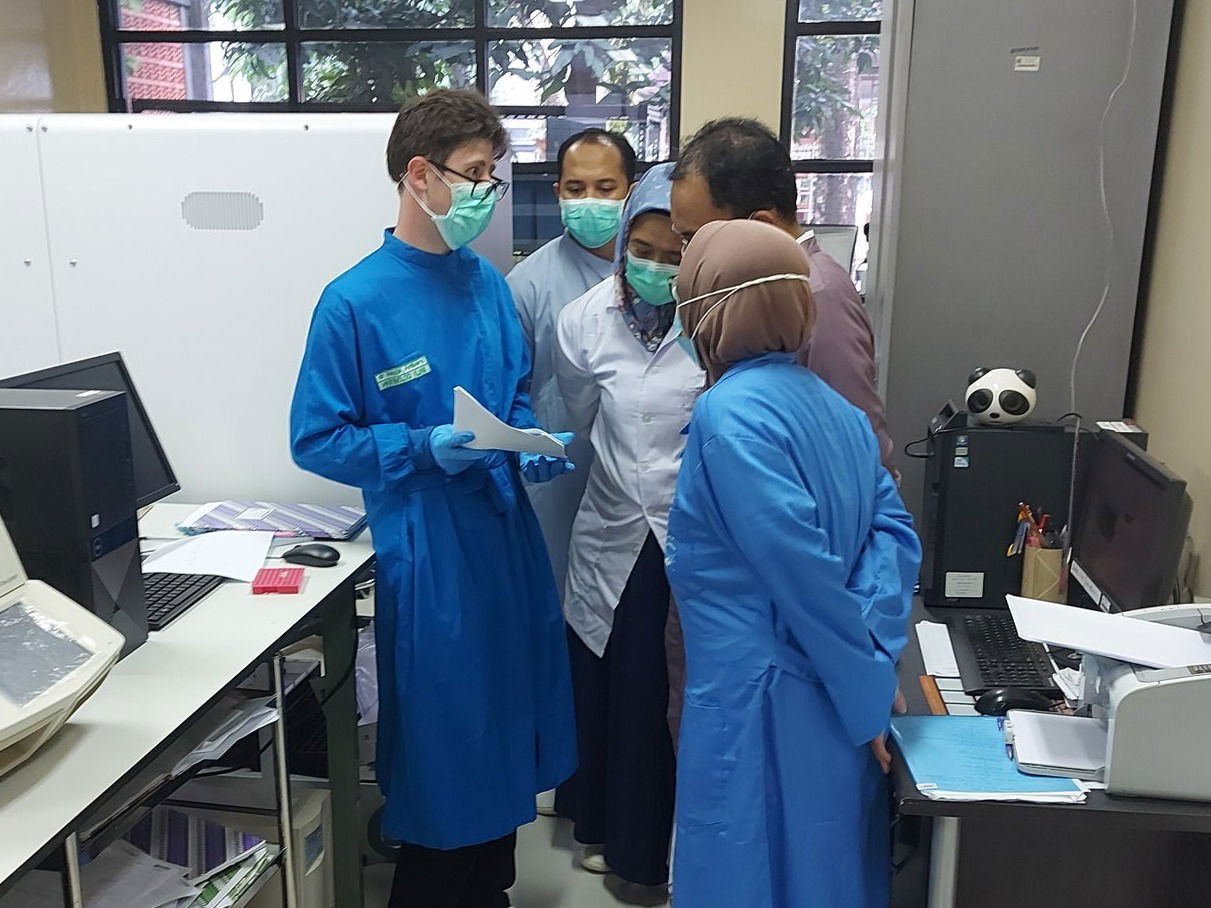Impact of advanced pathogen testing on DIagnosis of Meningo-Encephalitis (DIME study) among Indonesian patients.

As part of our LPDP funded UNITY study (local PI Dr Aifa [PhD student]) we looked at key patient and outcome parameters and diagnostic yield of routine hospital pathogen testing among meningo-encephalitis cases in Yogyakarta, Indonesia.
The photo above shows a still from a training video of local Indonesian clinical team undertaking an lumbar puncture.
Findings demonstrated the yield from routine testing was very low, treatment was largely empiric, patient outcome was poor, with high levels of death and disability among adults and children admitted with suspected meningitis/encephalitis (analysis being written up for publication).
As part of the DIME study (Newton/MRC Funded Study), we have built on these findings and introduced pathogen specific testing as part of meningitis/encephalitis management into clinical hospital laboratories in Yogyakarta. As part of this project, we are providing hands-on workshops to regional and local hospital microbiology laboratories to train local staff in pathogen specific PCR and quality control procedures, as well as sequencing techniques.

In the above photo, George, one of our research assistants (RA) is teaching the local team about sequencing analysis during a trip in March 2023.

The above photo is from a video of Lorna, our post-doctoral RA, and members of the local microbiology team in Dr Sardjito Hospital working through preparation of samples for pathogen specific PCR testing.

The Photo above shows Prof Tri Wibawa and members of the microbiology, paediatric and neurology study team in Universitas Gadhja Mada (UGM), Yogyakarta, Indonesia.
The project is also examining the impact of the lab changes on diagnostic yield, patient management and outcome.
The DIME study is ongoing, with initially Newton Funding, then an MRC supplement and now a further extension in 2023 with Indonesian funding.
Preliminary results indicate the introduction of routine GenXpert CSF testing for Mycobacterium Tuberculosis has markedly increased hospital detection of TB meningitis (TBM) in both children and adults. In turn, clinicians are increasingly prescribing anti-tuberculous medication during hospital stay. Similarly, promoting availability of CRAG rapid antigen tests for Cryptococcus in hospital, has increased CRAG testing among suspected fungal meningitis. Clinicians appear to more frequently consider testing and treating for fungal brain infections.